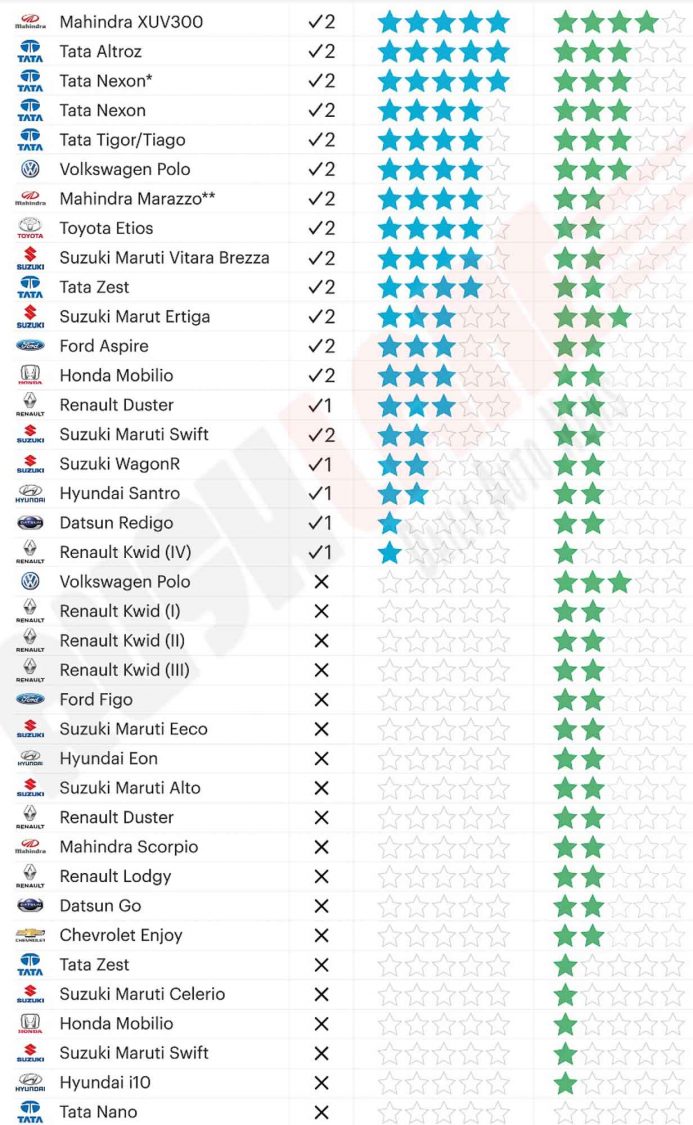The Mahindra XUV300 is the safest car available in India’s affordable segment yet
Global NCAP (New Car Assessment Programme) has tweeted a list of cars sold in India, in the decreasing order of their safety rating. The data shared as part of #SaferCarsForIndia initiative gives an insight into how home automakers Tata Motors and Mahindra prioritise safety in their latest offerings. It compiles the results of crash tests done by the organisation from 2014.
Global NCAP conducts crash tests to analyse two main criteria: Adult Occupant Protection (AOP) and Child Occupant Protection (COP). Either category has its own set of testing procedures. The chart lists almost every product coming under India’s affordable category. This includes various hatchbacks, subcompact (sub-four-metre) sedans, subcompact crossovers (or “compact SUVs”) and MUVs/MPVs.
While the pre-facelift Tata Nexon BS4 is the first made-in-India product to achieve a 5-star safety rating in Global NCAP, the Mahindra XUV300 is the safest Indian four-wheeler yet. In fact, the top five safest cars sold in the country (including the initial non-5-star Nexon model) are from Indian automakers.

Mahindra’s XUV300 beat Tata Motors’ Nexon subcompact crossover and Altroz hatchback (‘supermini’ under four metres in length) thanks to a 4-star COP rating. All three score five stars in AOP. Meanwhile, Volkswagen is the safest non-Indian OEM on the list thanks to the Polo hatchback which scored a 4-star AOP and 3-star COP. Following it is again an Indian product: Mahindra Marazzo MPV. Mahindra has not updated the Marazzo to BS6 specifications yet. It is one of the most underrated products in our market.
Maruti Suzuki had already stated that it won’t send products to Global NCAP but aims at meeting local safety standards. After all, tests conducted by Global NCAP (and most regional NCAPs) are voluntary. India’s very own BNVSAP (Bharat New Vehicle Safety Assessment Programme) was initially proposed to come into effect by mid-2014. There has not been an update on this ever since.
Some of these entrants have hit the market in improved BS6 formats, possibly meeting higher safety standards. For instance, the upcoming 2020MY Honda City boasts of a 5-star safety rating (AOP) in ASEAN NCAP.
OEMs generally do not send an all-new product to NCAP. The usual practice is to (1) conduct launch, (2) receive market feedback, (3) fix or iron-out minor issues and then send for testing. Regardless, it is good to see that safety has become more of a priority in Indian cars rather than an added luxury.

